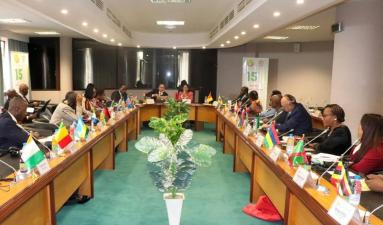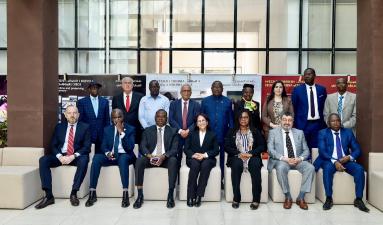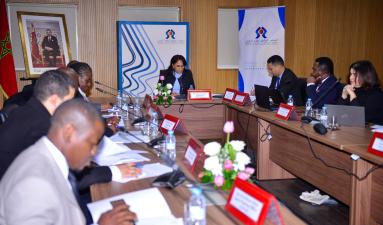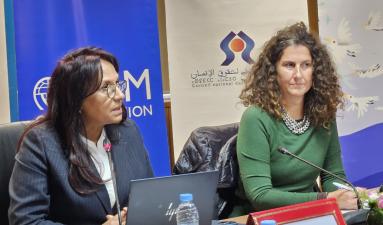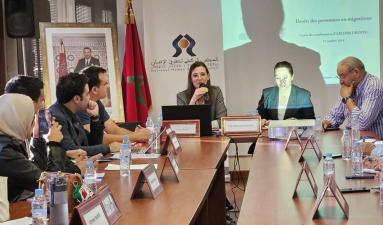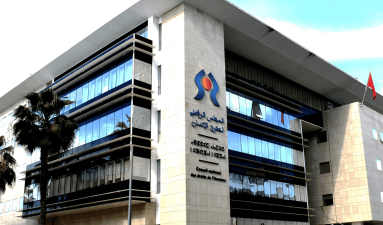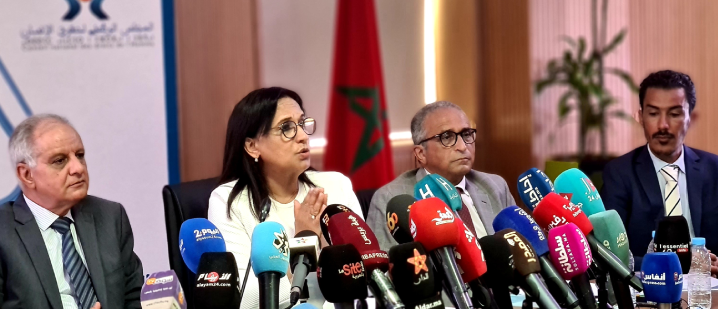
On July 13, 2022, the National Human Rights Council (CNDH) organized a press conference at its headquarters in Rabat, Morocco, to present the preliminary conclusions of the Fact-finding Commission established in the wake of the tragic and violent incident occurring at the Nador-Melilia crossing on Friday morning, June 24, 2022.
In her opening statement, Mrs. Amina Bouayach re-expressed the Council’s profound sadness at the loss of life and injuries resulting from migrants attempting to collectively cross the border fence, which she described as tragic and unprecedented in terms of its nature, plan, scope and the number of migrants who participated in it, as well as the number of victims and injuries.
Mrs. Bouayach also reiterated her sincere condolences to the families of the deceased migrants.
The Fact-findings Commission report includes 16 preliminary conclusions. It is the outcome of the collected data and testimonies on the way migrants climbed the iron fence between Nador and Melilia.
The most important conclusions are the number of deaths in these confrontations that reached 23, while the number of injuries reached 217, including 140 law enforcement officers and 77 migrants.
Following the medical examination of the bodies, the Council stated that the recorded deaths were caused by mechanical asphyxia, jostling and falling from the top of the fence. They were also due to space constraints and the large number of migrants who were jostling in the narrow yard at the crossing station where gates were firmly closed. The Council stressed that only an autopsy can accurately determine the exact individual causes of death.
The CNDH also underlined that none of the dead migrant’s bodies were buried. Members of the Commission confirmed the number of bodies during their visit to the mortuary. They also added that the Council's Regional Commission is following up on autopsy and DNA testing.
The CNDH Chairperson deplored the fact of using fake news and photos on social media. These published or shared elements had nothing to do with these events and confused national and international public opinion, particularly regarding allegations of using lethal weapons and firearms and providing insufficient or no medical care, etc.
Based on the Fact-finding Commission preliminary report and its meetings, the initial conclusions included 13 propositions in which the Council stressed the importance of extending judicial investigation to include all aspects of confrontations and the proportionality of using violence. Investigation results should be published to ensure accountability.
The Council also called on relevant authorities and stakeholders to reconsider the way order is maintained at the fence and crossing stations because people’s safety must always prevail. It also recommended that Moroccan authorities should launch new consultations with the European Union toward a true and equal partnership to implement the Global Compact for Safe, Orderly and Regular Migration.
In the same context, the Council deplored the exclusive and strict security approach to migrants, across the globe, namely regarding migrants from the Middle East and Africa, although migration is a humanitarian act and decision. Governments must prevent smugglers from having neither a grip nor the upper hand in this regard.
In concluding its proposals, the Council stressed the need to ensure the safety of migrants and to always abide by the principles of necessity and proportionality to protect their physical integrity, regardless of any circumstances.
The Fact-finding Commission was established on June 27, 2022. Its composition meets the criteria of specialization and expertise in migration issues. These criteria enhanced the achievement of objective, professional monitoring and the verification of data published in this regard.
The commission is composed of: Messrs. Mohamed Lamarti, Commission Coordinator and President of the Council’s Regional Commission in the Oriental (CRDH); Mohamed Charef, President of the Regional Human Rights Commission in the Souss-Massa Region; Abderrafie Hamdi, Director of Monitoring and Human Rights Protection at the CNDH; Dr. El Adel Essahimi, physician and member of the CRDH in the Oriental; and Mrs. Malika El Kihel Daoudi, member of the CRDH in the Oriental.

